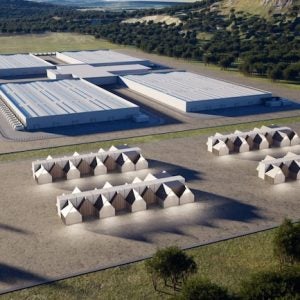As BNFL announced improved financial performance in its 2005 annual results, the UK government-owned nuclear business also confirmed it has commenced a sales process for its Westinghouse business unit.
Ending months of speculation, BNFL CEO Mike Parker said: “There have been a number of unsolicited approaches for Westinghouse and it was decided at the board meeting on 30 June to commence a sales process to determine whether a disposal would realise appropriate value.”
Group chairman Gordon Campbell said that the sale of Westinghouse would be in line with the 2003 strategy review, which concluded that BNFL should be managed to “deliver value and control risks to the UK tax payer.”
The group’s loss before interest, tax and exceptionals for the year to 31 March 2005 was $144 million ($256 million), almost half of the loss made in the previous year. Exceptional charges were £243 million ($433 million), primarily comprising of: £94 million for restructuring provisions mainly for its British Nuclear Group subsidiary; plus £132 million for the closing out of two fixed price legacy contracts with the US Department of Energy.
BNFL shadow division ALFA – which held the assets, liabilities and activities in preparation for the full operation of the Nuclear Decommissioning Authority (NDA) – generated an operating loss of £312 million ($556 million), down from a £532 million loss the previous year. The Magnox electricity generating business continued to have three figure accounting losses and the division has also borne the major part of pension deficit repairs and IT upgrade costs. As of 1 April 2005, the majority of activities of ALFA transferred to the NDA, subject to an ongoing European Union state aid investigation.
Partly offsetting the loss by ALFA, were profits made by the group’s business units. Before interest, taxation and exceptional items, these consisted of: Westinghouse – £41 million ($73 million); British Nuclear Group – £101 million ($180 million), plus a further £18 million ($32 million) from the Spent Fuel Services division; and Nexia Solutions – £6 million ($11 million).






